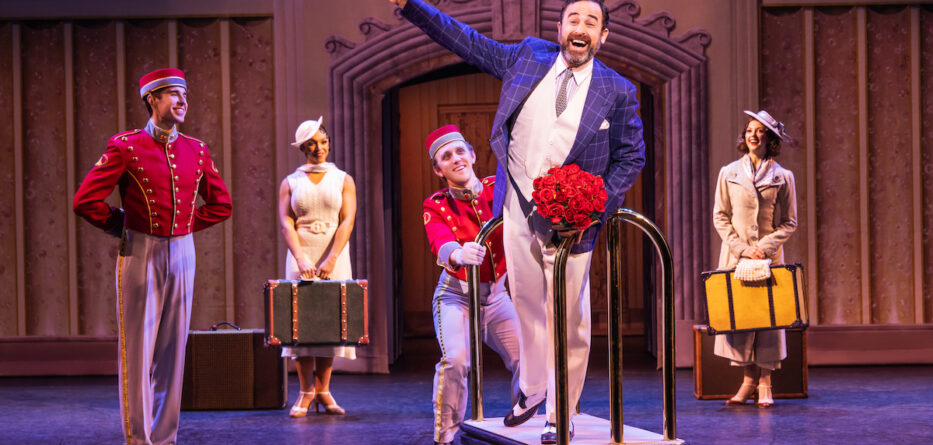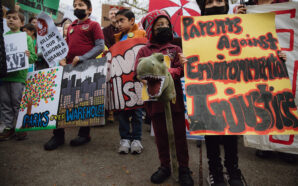Arturo Hilario
El Observador
Edward Juvier is a Cuban American actor born in Texas who first became interested in the performing arts while living in the Bay Area for a few years in his youth. From there his appetite for the stage and the music and dance became the ultimate goal, and these days you can find him living the fruits of his labor across the country.
Currently Juvier is touring with the National Tour of the acclaimed musical Some Like It Hot, which is coming to San Jose’s Center for the Performing Arts starting on Tuesday, October 21 and running through Sunday, October 26, 2025.
Winner of 4 Tony Awards such as Best Choreography and Best Costumes, the show premiered in 2022, although its title might sound familiar as it is based on the 1959 film starring the incomparable blonde bombshell, Marilyn Monroe.
The story focuses on two musicians forced to flee Chicago after witnessing a crime perpetuated by the Mafia. With the chaos of mobsters at their backs the two leads must get on a train for an incredible ride full of thrills, music and dancing as they try to escape the situation unscathed.
Juvier recently spoke about his experience on working on the show as the character of Osgood, and how this new musical version of the 1959 film creates a more diverse and contemporary reflection of the story while sounding as if it were a classic Broadway show, full of tap dancing, jazz and full of heart and soul.
Tickets and more information available at broadwaysanjose.com.
Could you touch on your journey to the performing arts and what influenced you or made you interested in this path?
Well, I am a Cuban-American, born in Houston, Texas, and I actually spent some time in the Bay Area. I lived in Los Altos my fourth, fifth, and sixth grade year, and that’s where I started singing, actually. I started in choirs there. And when we moved back to Texas, they didn’t really have a choral program like they did right there in the Bay Area, so I started theater.
In my high school years I started doing Broadway and theater work in the Texas area, and that’s where I got the bug. And I went to college for musical theater at the Boston Conservatory in the ’90s, when that was still a new major that was being offered. So we were in the Wild West of musical theater programs back then, and that’s where I started.
Coming from Texas and being Hispanic, I was wondering if it was seen as peculiar to be involved in theater at the time?
Yeah, absolutely. Well, back then in the ’90s, that diversity wasn’t really first forefront on I was whitewashed into the world back then, as everybody was. It wasn’t just Hispanics; everybody was just kinda whitewashed back then. So I really love, and I’ve loved throughout my career watching that diversity be amplified.
And it’s something exciting now to have diversity around you and all these different kinds of shows like In the Heights and Hamilton and all these new shows that are coming out that celebrate diversity, including ours.
Can you talk a little bit about the show Some Like It Hot, and why you feel that this story continues to be relevant?
So now this version of Some Like It Hot is a new musical version of the original Billy Wilder film with Marilyn Monroe and Tony Curtis and Jack Lemmon, which is an incredible movie. But if you watch it in today’s eyes, it might be a little outdated.
So this version really brings it into the modern eye. It takes these themes of gender and race and puts it right there and updates it for the modern audience. So I think it’s actually taking this old, beautiful story and making it more accessible for today’s generation.
So I really love, and I’ve loved throughout my career watching that diversity be amplified. And it’s something exciting now to have diversity around you and all these different kinds of shows like In the Heights and Hamilton and all these new shows that are coming out that celebrate diversity, including ours.
-Edward Juvier
What would you say are some of the most drastic changes that you’ve noticed from the film version to this more refreshed, modern version?
Sure. Well, it actually comes in many forms. One of them is that they’ve injected race into the story by making the character of Sugar, the Marilyn Monroe character, black, as well as the Jack Lemon character is also Black.
So this is a story about jazz musicians in the 1930s. I think it’s important to put the black storyline, make that about jazz musicians in the 1930s. How can you omit the black storyline there? So I’m so glad that they’ve included that.
And as well as, back in the film, the “old-man-in-a-dress” trope where it was just funny to have a man dressed as a woman, I think that our version just carefully explores that, those themes a little bit more. And it’s less of a joke than it was in the film. It’s more of an opportunity for them to learn about themselves. So I really appreciate that they toned down the misogyny of the film and really took gender issues into question, and they’re really putting it at the forefront there.
Can you touch on your character of Osgood and how they have changed from the film version to this new interpretation?
I love this version of Osgood so much. I love Joe E. Brown’s interpretation in the film as well. But I will say that our version, I think, has much more heart. I don’t want to say “more heart”; I think that they’ve intentionally given the character authenticity as opposed to just trying to be conveniently with a woman he actually falls in love with, Daphne.
So, there’s more true intentions in our version, I think from all the characters. And then what I love about my character, especially in this version, is that he helps the other characters become more authentically themselves as well.
And what do you like most about working on this show and working on a national tour?
This show is just such a joy to perform across the country, especially at this time right now, because I always say it’s a “sneak attack”. People come in and they think they know the story, which they do, and they think they know the music, which they don’t because it’s new, but it feels like they know it.
It’s an old-school Broadway musical with tap dancing, incredible tap dancing. Then by the end of it, you’ve been given this very sweet message of love and acceptance that I don’t think exists in other versions of Some Like It Hot. So that’s why I call it a sneak attack.
What do you hope that people take away from this show and its new interpretation of the story?
Well, the first thing that I hope they take away with is the pure joy that we have performing it and that the story is trying to tell. Just pure joy. I hope that people take that away. And I also hope that it just leaves them with understanding that acceptance is key to everything. Just accepting people for who they are at their face value and what they tell you they are. I think that’s another takeaway I would like for them to have.
Would you say that’s why this one might have some more sincerity towards the characters and what it’s trying to say?
Yes, I think so. I love that original film, so I don’t want to dog the original film at all. But there is much more of a convenience factor for all of the characters in that film. They are conveniently dressing as women. They are conveniently marrying each other for millions of dollars. They’re conveniently running away. And I think that our version of the show really gives it true intentions and purpose at the end so that the happy ending is earned in our show.
Thank you so much Edward. And is there anything else that you’d like to leave us with?
Just how excited I am to be performing in San Jose, to be back in my old stomping grounds. I always consider the Bay Area such a haven for the arts, and it’s really what inspired me to start singing and seeing that a life in the arts is possible.
So I’m so grateful. I remember going to TheatreWorks shows when I was a kid. It was the student matinees and realizing that this is something that you could do for a living. People are acting for a living! So I always think of the Bay Area as what really set off my artistic career. So I’m so excited to be back there.





